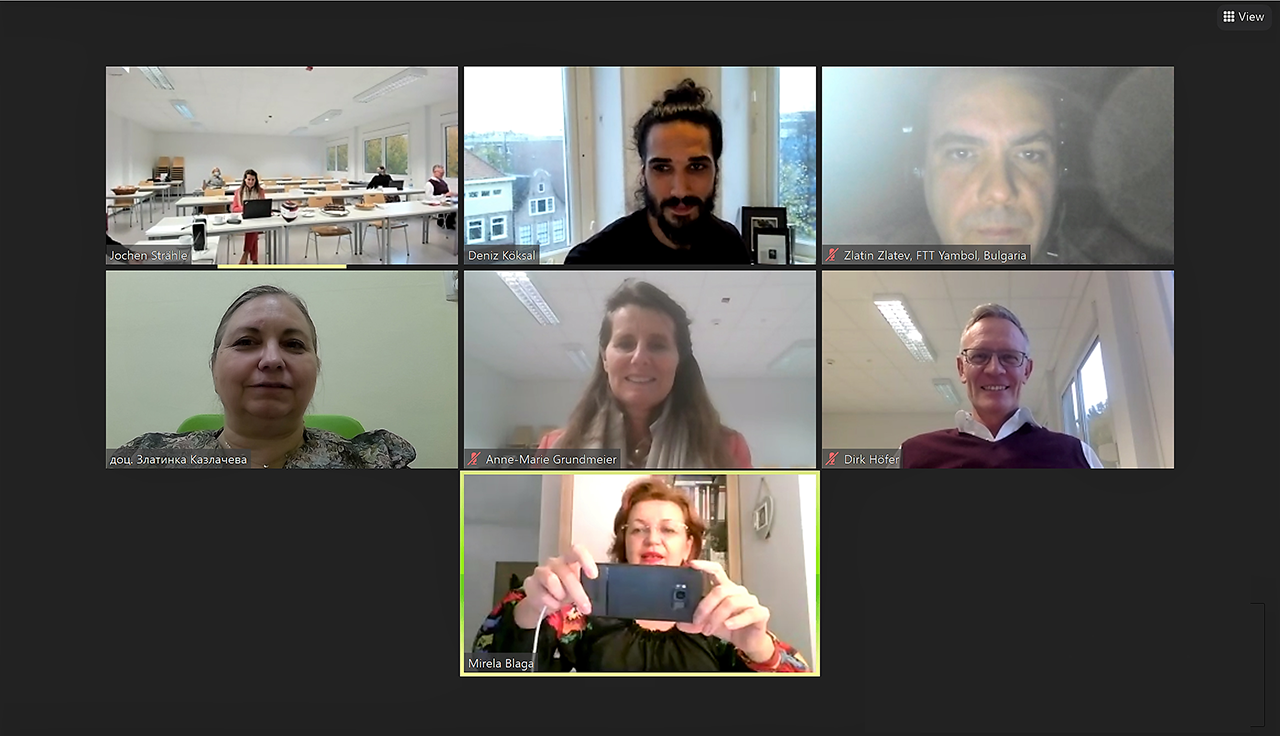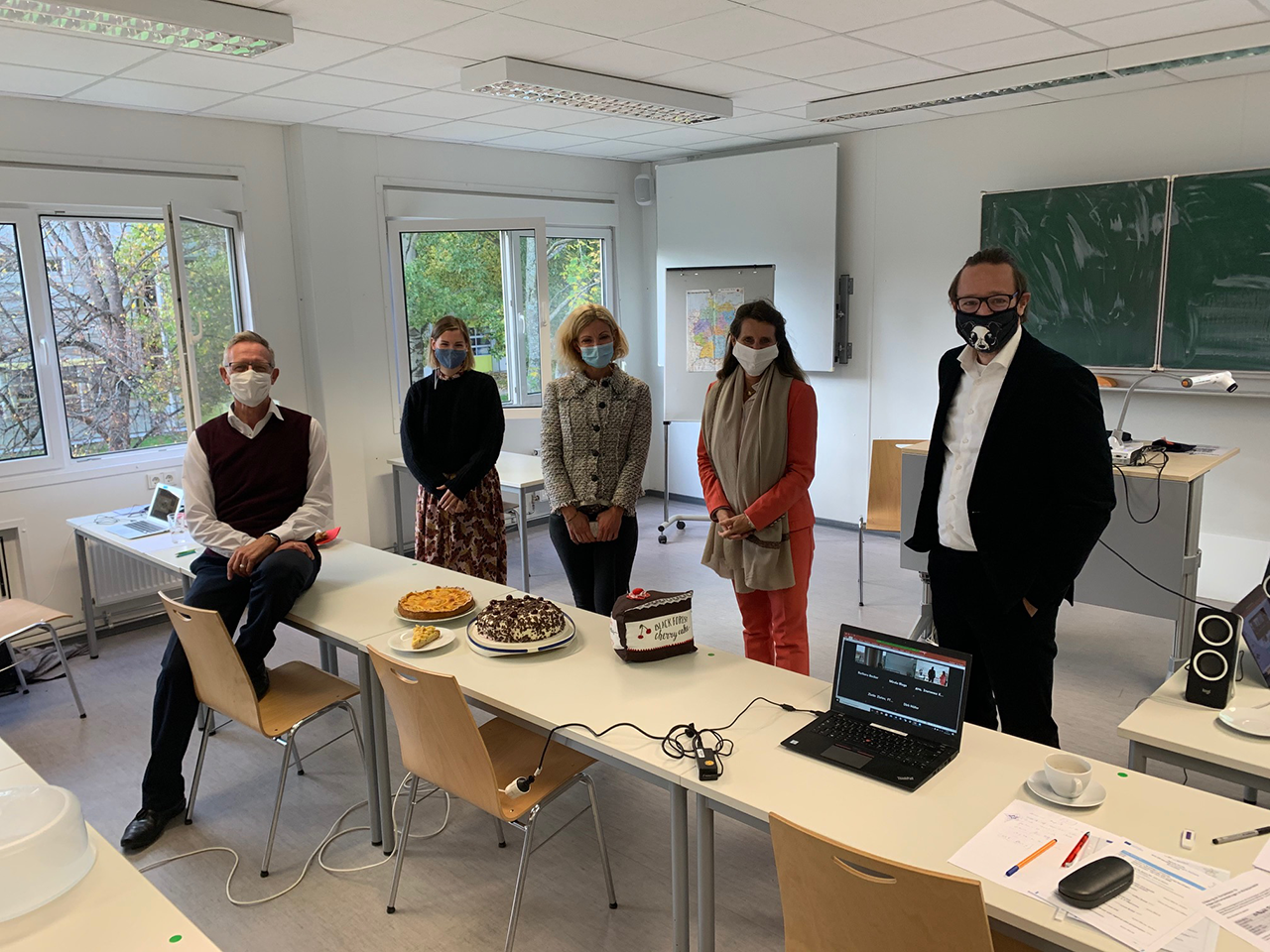Kicking-off the European Fashion DIET Project
Shortly before the second Covid-19-related lockdown phase in Germany, the European research project entitled Fashion DIET: Sustainable fashion curriculum at textile Universities in Europe – Development, Implementation and Evaluation of a Teaching Module for Educators started with a hybrid project kick-off meeting, as participants attended online or in person at Reutlingen University. Abbreviated to an acronym and the more catchy term Fashion DIET, this international research project will continuously implement Education for Sustainable Development (ESD) over the next years in organisations of education and in the textile and fashion industry as a new illuminating guiding principle. To reach this ambitious goal, the comprehensive didactic content and methodology of the Fashion DIET Project will be jointly elaborated between experts of four institutions of higher education: University of Education Freiburg (coordinator), Reutlingen University, George Asachi Technical University of Iaşi in Romania and Trakia University of Stara Zagora in Bulgaria. For the next three years, the project will be co-funded by the Erasmus+ Programme of the European Union, one of Europe’s most successful initiatives with great importance also for the higher education community.

Figure 1: Screen shot of the Fashion DIET kick-off-meeting. The participants were: Barbara Becker, Prof. Dr. Anne-Marie Grundmeier, Prof. Dr. Dirk Höfer (University of Education Freiburg), Prof. Dr. Mirela Blaga, Prof. Dr. Antonela Curteza (George Asachi Technical University of Iaşi, Romania), Dr. Petya Dineva, Prof. Dr. Zlatina Kazlacheva, Dr. Zhulieta Ilieva, Prof. Dr. Vanya Stoykova, Prof. Dr. Zlatin Zlatev (Trakia University of Stara Zagora, Bulgaria), Mirjana Apostolov, Dr. Deniz Köksal, Prof. Dr. Jochen Strähle, Marlen Wagner (Reutlingen University).
When the study coordinator, Prof. Dr. Anne-Marie Grundmeier (Freiburg), welcomed the participants and gave an overview on the visions of the project, everyone was delighted and felt relieved that nowadays modern technologies easily engage remote meetings (figure 1) to bring teams together anytime and anywhere, especially in a pandemic situation like Covid-19. Soon, the hybrid meeting enabled comfortable collaborative work and turned out to be as efficient as customary face-2-face events. Ms Grassler, attending online from the EU office of the Universities of Education in Baden-Wuerttemberg, shared many helpful hints and tips on a proper finance and administration. Then, the planned milestones and intellectual outputs of the fashion-DIET project were reviewed, followed by an intense discussion about objectives, needs and challenges and the respective responsibilities of each partner. When an impressive Black Forest gateau made it into the seminars rooms (figure 2), the team also proved, that despite face-2-face connections, even in virtual meetings cross-cultural networking can be established nowadays: The team enjoyed a mutual coffee and cake break with regional cake presentations across the computer screens. Each partner university presented at least one regional cake, explained its origin and recipes. After this welcome variety, the teams went back to work and milestones were set to reach the self-determined intellectual outputs. Finally, the next steps and appointments were discussed.

Figure 2: Mutual coffee and cake break during the Fashion DIET kick-off-meeting. The team in Reutlingen (persons in the background), well protected with facemasks, presented their cakes to share the culinary heritages with the online attending colleagues. Cakes in front from left to right: apple pie, crumble cake and Black Forest gateau, escorted by a textile object.
Within the course over the next three years, the Fashion DIET project will generate research-based comprehensive and actual teaching and learning material under the guiding principle of ESD on a country-specific and regional basis in order to mitigate the devastating human and environmental risks of the fast fashion industry. With the end of the project, these materials will be available via an information and e-learning portal intending to educate the educators and use them as multipliers. This approach thus strongly enhances the quality and international standing of European higher education and its contribution to society, which is the main objective of the Erasmus+ Programme.
Fashion DIET consortium, November 2020
